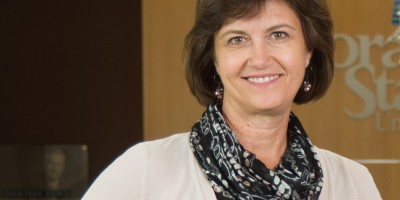In the spotlight:
Name: Professor David Rae
Location: South Nottinghamshire, UK
Occupation: Professor of Enterprise and Executive Dean for Research & Knowledge Exchange at Bishop Grosseteste University, Lincoln
You are an influential individual within the enterprise education space. What does ‘enterprise education’ mean to you, and why do you think it’s important?
I see enterprise education as a structured process to learn about enterprise, and develop knowledge and skills in being enterprising. Everyone has the potential for enterprise in some way in their lives.
Entrepreneurship I see as being specifically focussed on creating and exploiting an opportunity through a venture, project or organisations. And there is a whole area of entrepreneurial learning which is connected with that process which may not take place in an educational setting at all.
How did you first become involved with enterprise education?
Back in the 1990s, I taught students on a business course. They had fun working in teams to set up micro-enterprises and trade – which they said was the best thing they did during their degree. I realised that experiential learning is the best way of building confidence and skills development. The idea for The Hive at Nottingham Trent University came out of that, and it is still fantastically successful after 17 years.
How has enterprise education changed over the years, and how does it benefit students today?
Enterprise education continually changes and is less business school-focussed than it was; much more accepted in sciences, humanities, sports and other subjects as a valuable skillset. I think it is successful if students appreciate that creating their own business is a career option open to them when they need or want to do so.
You have contributed to enterprise education across the globe, having been Dean of the Shannon Business School at Cape Breton University, Canada. How does Britain’s attitude to enterprise education differ to our overseas counterparts? Is there anything we can learn – and vice-versa?
Working as Dean of the Shannon Business School in Canada was an interesting experience and I learned a lot about community economic development happening through co-operative principles – and, allied to that, how first nations people such as those in Membertou, Cape Breton had developed a very successful community entrepreneurship model. We can learn a lot from those examples.
I see entrepreneurship much more as a collective movement for economic and social transformation, which is bigger in ambition and scale than individuals starting their own businesses. It’s about creating an open, entrepreneurial society. And, as Dr Martin Lackeus proposed, entrepreneurship as an educational philosophy of shared value creation.
You have a significant track record in the leadership of business and enterprise in Higher Education. What would you say to any institutions or academics who are sceptical about including enterprise education within their curriculum?
Academics are entitled to be sceptical – or indeed critical – of what they may see as new ideologies.
I’ve found that it often helps to redefine our terms and think about the language we use. Enterprise can also be defined as ‘applied creativity’, which can be more productive in arts, culture and humanities. Open innovation and social innovation are very relevant concepts in engineering and social sciences respectively. We don’t have to badge everything with an ‘E’. We’re really looking at translating human talent, knowledge and technology into new applications which create multiple forms of value, combined with the human agency to effect change, and those concepts are transferable very widely indeed, if not universally.
There’s an age-old debate about whether entrepreneurs are born or made. Can you weigh into this?
I believe human motivation and intentionality, within a supportive culture, matter more. We are understanding more about neuroscience, and the roles of intuition and emotion, in entrepreneurial working. These probably matter much more than genetics. If you grow up in a family where people are running businesses, you are more likely to do so yourself, but that’s still more about social learning.
For students who don’t want to be entrepreneurs, what other benefits does enterprise education provide?
You can be in control of your life and work. Your career can be your personal enterprise. You can generate multiple career options and self-employment is one of them.
Where do you hope to see enterprise education in five years’ time?
Pervasive, open to everyone. We are moving into a world of open entrepreneurship, innovation, access and data. The entrepreneurial challenge is creating value from free-to-use resources.
What does a typical day look like in the world of Professor David Rae?
A good day is when I make a valued difference to someone’s life, their business or research project. When we take an ambitious project a stage further, solve a problem or make something new happen. There are moments of transformation we don’t know the impact of at the time. I once said to a colleague, now a good friend, who was in a state of nothing going right, “Don’t give up!”. She told me later it helped her turn things round because she knew she could.
And finally, David, tell us: if you were an animal, what would you be and why?
My Twitter icon is Warycat, a small black cat. She’s fully grown now and we have four cats. They eat, sleep and play. It’s a good life but I like to make things as well.





Leave a Reply